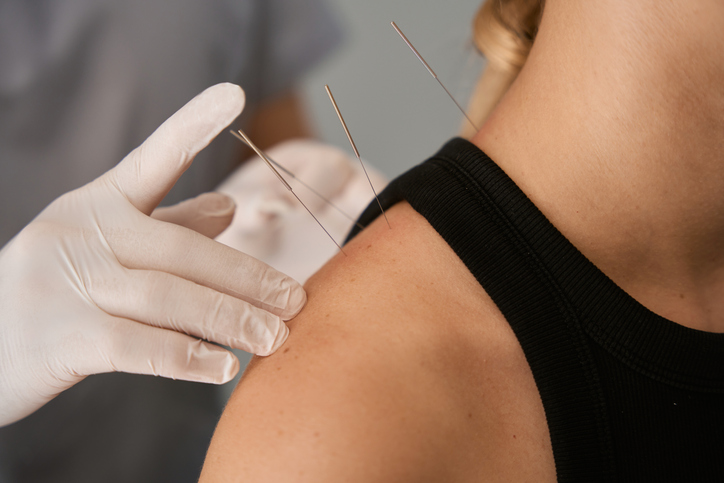Snooze Naturally with Acupuncture
As more people turn to holistic wellness practices to support their daily lives, acupuncture is getting more attention for its many health benefits including enhancing sleep and addressing sleep-related issues. Rooted in thousands of years of traditional Chinese medicine, acupuncture has long been used to promote balance and healing. If counting sheep and melatonin gummies aren’t cutting it, this ancient technique might be worth exploring.
Tiny needles, big impact
Acupuncture involves the insertion of very thin needles into specific points on the body. These points are believed to stimulate energy flow, or “Qi” in Chinese (pronounced “chee”) and promote balance within the body. This ancient Chinese practice is gentle and natural and is part of a growing shift in Western cultures and medicine toward solutions that support the body’s natural ability to heal and rest. Modern research continues to validate its effects, showing that it can influence the nervous system, release endorphins, and support the body’s natural resilience.
Sleep, meet your new ally
For many, acupuncture’s biggest draw is its calming effect on the mind and body. It’s known to reduce stress and anxiety , two major culprits of poor sleep. By helping to regulate the body’s levels of melatonin and cortisol, acupuncture encourages a more natural sleep-wake cycle.
It can also ease physical discomfort, such as chronic pain, migraines, or muscle tension, which often interfere with restful sleep. Some patients report falling asleep during their sessions which is an encouraging sign that the body is already responding. If nighttime overthinking is familiar to you, acupuncture might offer the kind of gentle nudge your body needs to shift into rest mode.
Science gives it a nod
Several studies have backed up acupuncture’s benefits for sleep. A review published in the Journal of Alternative and Complementary Medicine found that acupuncture improved sleep quality and duration for people with insomnia. Other studies suggest that it may enhance slow-wave sleep, the deepest and most restorative sleep phase. While more studies are still needed, the evidence so far is promising, particularly for people looking to avoid pharmaceutical sleep aids.
Whole-body sleep wins
Acupuncture isn’t a magic fix, but it can be a valuable piece of the sleep puzzle. When paired with other mindful habits like unplugging before bed, keeping a consistent routine, and creating a calming enviroment it supports a more balanced, whole-body approach to rest.
